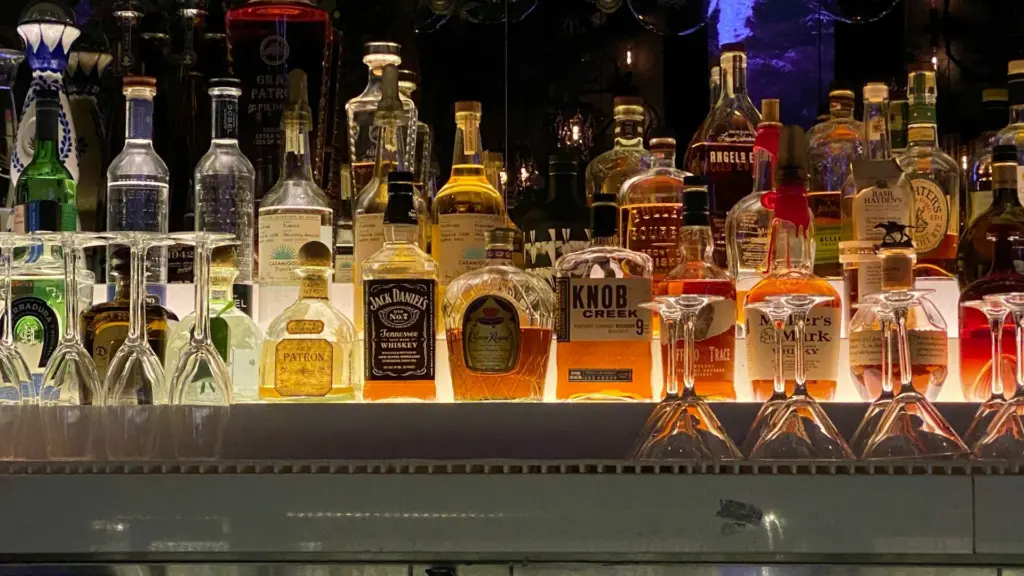OLYMPIA, WA – For the twelfth year in a row, Washington state has the highest excise tax rate on distilled spirits in the nation, at $36.98 per gallon.
According to a new report from the Tax Foundation, “distilled spirits continue to lead American alcohol sales, with 42.2 percent of market share,” slightly outpacing beer sales for the third straight year.
Distilled spirits include hard alcohol like vodka and gin, and cocktails that contain hard alcohol.
Newer products like ready-to-drink cocktails and hard seltzers account for much of the increased popularity of spirits.
“Washington state has a particularly high tax burden on spirits, well above the next highest of Virginia. Almost 150% of the Virginia tax,” said Jacob Macumber-Rosin, an excise tax policy analyst with the Tax Foundation.
Macumber-Rosin explained that Washington has three distinct taxes applicable to spirits, which account for the higher tax burden.
“There’s the traditional liter tax that’s X amount of dollars per liter, and then there’s a specific sales tax that the customer pays, and there’s also a percentage-based retail license fee that applies to businesses,” he said. “The combination of those three things amounts to a much higher burden than in other states.”
According to the Tax Foundation report, spirits bear the lowest burden in Wyoming and New Hampshire, with both states levying an effective rate of $0 per gallon, followed by Missouri at $2 per gallon.
The Center Square reached out to the Washington Distillers Guild for comment on the latest report showing Washington’s taxes on spirits are far more burdensome than any other state.
“Not only is our state highest in rates per gallon, but the 20.5% spirits sales tax disproportionately affects our 100-plus distilleries in the state producing award-winning, high-quality spirits that have a higher price point to start and encourages consumers to look for lower priced big brands from out of state, as the overall cost will be a lot less,” A.J. Temple, head distiller and founder of Lynwood-based Temple Distilling, emailed The Center Square.
Temple said the distilled spirits industry’s pleas for parity with beer and wine for a fair and balanced approach based on consumption have been ignored.
“We are met with heavy opposition from lobbying efforts representing those big brands in beer and wine,” Temple said. “Unfortunately, the biggest losers are our Washington residents already facing rising costs of living and enjoying life in our beautiful state.”
Macumber-Rosin told The Center Square he agrees that the tax burden on distillers is far greater than that on the beer and wine industry in Washington.
“Washington has a relatively lower rate applied to wine and beer than spirits, and that’s even accounting for the variances in alcohol by volume,” he explained. “So, anything spirits-related is going to bear a heavier burden than beer or wine.”
The Tax Foundation wrote in its report that taxing according to actual alcohol content would modernize the system: “This would enable neutral tax treatment across different types of alcohol, incentivizing competition between spirits, beer, and wine.”
Temple noted theft of alcohol and retailers’ response to that has hurt their business as well.
“An increased effort to reduce access to alcohol with grocery stores locking up spirits and sales continue to take a hit as a result,” he said. “Our many distilleries are struggling with this, and we not only offer quality local alternatives to out-of-state brands, but we employ a lot of people and also support farming and agriculture in the state by using local grains and other ingredients in what we make.”
Temple hopes that Washington lawmakers will address the tax disparity.
“It will take decisive action from the liquor board and those in Olympia who can make it happen. Despite our tax rates being so high, overall state revenue is down in spirits sales tax, since people simply aren’t able to afford them,” he said. “Even though it may seem counterproductive from a revenue standpoint, I believe the state would see increased tax revenue if we leveled the playing field and consumers could once again afford our local craft spirits.”
